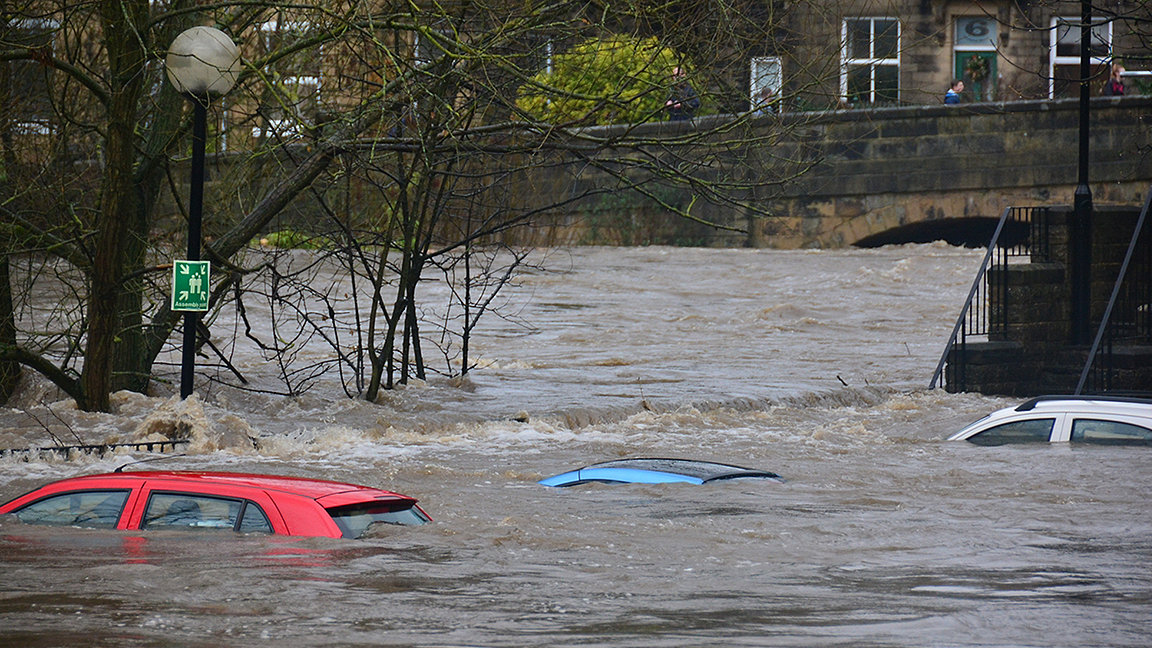
Before 2016, some householders who had suffered flood damage struggled to insure their properties again due to the risk of repeat flooding. Even if they were able to buy cover, their premiums and excesses sometimes went through the roof.
In 2016, Flood Re was created jointly by the UK government and insurers, with the aim of making flood cover in household insurance policies more affordable, and the scheme has now helped more than 350,000 households across the UK.
Nearly all householders whose properties had previously flooded are now able to get quotes from five or more insurers; none had been able to do this before the launch of Flood Re. Furthermore, four out of five of these households can now obtain quotes that are half the price than before.
But at Flood Re, our work is not yet done. Flooding is a high priority for the UK government, and climate change will only increase its importance. Research has shown that by the 2050s, annual losses in the UK from flooding are expected to increase by between 25% and 80%, depending on whether global temperatures warm by 2C or 4C.
Review reveals need for improvement
On the ground, there remain issues where the insurance market can offer further help. Last October saw the publication of Amanda Blanc's review into the devastating floods experienced by residents of Doncaster in November 2019.
Although the review found no evidence of systemic issues with the availability, accessibility or affordability of flood insurance, it did draw attention to some areas where the market needs to improve.
For example, Blanc noted that at least 6% of households in the area had home insurance that excluded flooding. This is deeply concerning, and we welcome insurers' commitment to ensure that all householders are sold the right policy with appropriate cover.
Given the current and future threat of flooding, there are three main areas where we need to make progress before Flood Re exits the market in 2039; namely, reducing the risk and cost of flooding, and the introduction of performance certificates.
These areas are the focus of our transition plan, published in 2018, which sets out the foundations for an affordable, risk-reflective market for flood insurance that is designed to remain in place long after Flood Re closes.
Lowering flood risk
First, we need to reduce the risk of flooding by improving the UK's flood defences, and ensuring it is not aggravated by inappropriate housing development.
The government has already made a considerable commitment to this goal, announcing in last year's spring budget that it will invest £5.2bn over six years in flood defences.
This is a welcome step.
We have also asked the government to pledge long-term investment in flood defence capital and maintenance spending for at least the next ten years.
However, these efforts will ultimately be undermined if the planning system is not revised. Too many homes are being granted planning permission in floodplains, and their vulnerability is exacerbated by the lack of standards to ensure the long-term resilience necessary to deal with the increasing risk of flooding.
'We need to reduce the risk of flooding by improving the UK's flood defences, and ensuring it is not aggravated by inappropriate housing development'
Reducing flooding cost
Second, we need to reduce the cost of flooding. One of the best ways to achieve this is through the installation of property flood resilience (PFR) measures.
With that goal in mind, Flood Re has proposed a number of changes to encourage the uptake of PFR. Our build back better proposal would allow the scheme to reimburse insurers for claims that include some resilient repair over and beyond the original flood-related loss. These measures would reduce both the potential impact of flooding on homes and the cost of future claims.
First published in our quinquennial review, our Build Back Better proposals are now backed by the Department for Environment, Food and Rural Affairs following a public consultation. We look forward to the necessary statutory changes being completed so that we can begin delivering Build Back Better in 2022.
Flood performance certificates
Third, we need to ensure an effective insurance market. Central to doing so is our recent proposal to introduce flood performance certificates (FPCs) for all UK homes. An FPC would provide a rating that would reflect the risk of flooding to a property, and the extent of damage should a flood occur. Most importantly, the certificate would make recommendations for the most effective PFR measures that could be taken in the property.
We will continue to push for the introduction of FPCs as we believe they will provide peace of mind for households, and encourage them to make the property more resilient to flooding.
Building a sustainable future
Across the world, governments and insurers are considering the best way to recover from the pandemic. This is a pivotal moment, because it gives a unique opportunity to create sustainable and resilient foundations for the future. Further flooding is inevitable, but it is in our power to ensure that we are prepared for when it does occur.
Focusing on reducing flooding's impact and cost and providing householders and insurers with resources such as FPCs are the cornerstones to ensuring flood insurance remains affordable and available to all long after Flood Re has concluded. With the impacts of climate change knocking at the door, the time to act is now.
RICS comments: 'RICS participated in the production of the Construction Industry Research and Information Association's Code of practice for property flood resilience, along with the Chartered Institution of Water and Environmental Management and the Institution of Civil Engineers.
'PFR measures are an important step forward in reducing flood risk, and we would encourage chartered building surveyors to familiarise themselves with this key document.'
